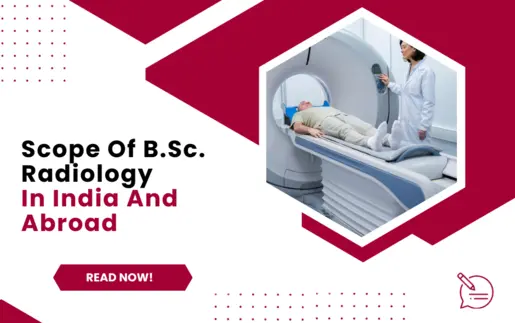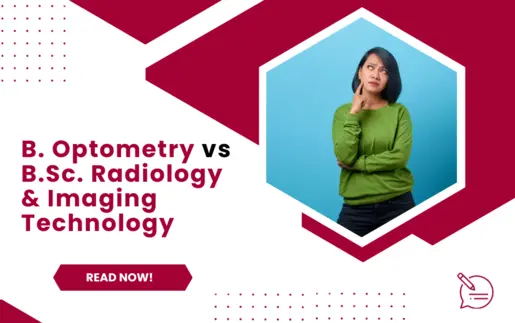Know All About Forensic Science
Forensic Science
The Latin term "forensis," which means of or before the forum, originates from the English word "forensic."
Forensic science applies scientific knowledge principles to legal matters and criminal investigations. A wide range of forensic science courses, including chemistry, biology, physics, geology, physiology, and social sciences, are included in this field.
Forensic science includes investigating crimes like rapes, murders, and drug trafficking.
A program in forensic sciences focuses on using scientific knowledge for criminal investigation. Toxicology, crime scene investigation, forensic biology, and forensic chemistry are just a few of the criminalistic specialists covered by the program. It discusses both theoretical and practical aspects of every field.
As forensic science continues to grab our interest through crime dramas and genuine investigations, there is an increasing need for skilled forensic scientists. If you have a passion for solving problems and learning hidden stories, pursuing this degree may be the best first step toward a rewarding career in this field.
CGC Jhanjeri, the top BSc Forensic Science College in Punjab, is an institution where future researchers can develop the skills necessary to be successful in their field of study.
What is B Sc Forensic Science?
B Sc Forensic Science is a three-year undergraduate program designed and developed for students who want to pursue a career in forensics. It is a highly competitive course with a higher demand for forensic experts in the market. Forensic science courses train the students to provide support in investigating crimes and identify the suspects from clues found at the crime scenes.
Highlights about the B Sc Forensic Science
| Particulars | Values |
|---|---|
| Degree Name | B Sc Forensic Science |
| Degree Type | Undergraduate |
| Degree Duration | Three years |
| Eligibility Criteria | 10+2 in physics, chemistry and biology |
| Average Salary | Rs. 3,00,000 to Rs. 17,00,000 |
| Job profiles | Forensic Scientist, Crime Scene Investigator, Forensic Expert |
| Top recruiters | Government Forensic Laboratory, Income Tax Department, Central Bureau of Investigation, Crime Branch, Intelligence Bureau |
Types of Forensic Science
It's possible that you won't have a specific speciality when you first begin working as a forensic scientist. You might become an expert in one of these forensic science fields as you gain knowledge and experience while working.
Anthropology
As a result of mutilation, burning, decay, etc., bodies can become unidentifiable during an incident and forensic science - anthropology comes into play in these situations. Forensic anthropologists can look at human remains or skeletons to help identify those who died and determine what caused it.
They are proficient at identifying an individual's age, sex, race, and physical makeup from the bones or bone fragments. Additionally, they can establish if a bone injury happened before, during, or after death and the cause of death (suicide, accident, or sickness).
Criminalists
When they imagine what a forensic science graduate works daily, people usually visualise duties related to criminalistics, such as forensic ballistics. Not all of the objects that are taken from a crime scene are important. Criminalists step in to help with that.
These specialists, who are most frequently based in a forensic lab, have two primary objectives: to identify the evidence and to link the evidence to specific people, things, and situations. Criminalistics specialists may work for various institutions, including police forces, government agencies (such as the FBI, DEA, or ATF), medical examiners' offices, and even the U.S. Postal Service.
Digital & Multimedia Science
Using the most advanced forensic technologies involves collecting and evaluating digital evidence (such as that in computers, hard drives, USB drives, etc.). It is mainly used to investigate cybercrimes.
The use of recoverable digital evidence to support or dispute an argument in court is another aspect of digital forensics related to criminal law.
Engineering & Applied Sciences
Suppose a product, material, mechanical component, or structure fails or cannot perform according to plan, causing personal injury or property damage. Have you ever considered that there may be a completely different branch of forensics for investigating it? Forensic science-engineering focuses on that.
The broadest group of forensic professionals can be found in this field; they are problem-solvers with backgrounds in one of the many fields of physics, chemistry, or engineering.
These experts are brought in in civil as well as criminal cases to look into issues like
- Automobile collisions
- Building collapses
- Train derailments
- Explosions
- Product failures
- Environmental contamination
General Forensic Science
The general category includes forensic science specialities in lab, field, clinical, education, and research that do not fit into other, more specific disciplines.
These cover a variety of topics, including:-
- Accounting
- Veterinary services
- Nursing
- Consulting
- Art and sculpting
- Radiology
- Management and administration
Odontology
Any dental evidence that might later be used as legal evidence in a court of law needs proper handling, inspection, and review by forensic odontologists and dentists. Forensic odontology often helps detectives identify victims whose bodies are left in an unidentifiable state.
Forensic dentists play a significant part in the comparative identification of a person by examining the growth and shape of the teeth, including fillings or other restoration dental adjustments. Dental forensics is a major component of criminal investigations, including bite marks.
Pathology
Pathology is the study of disease. The field of forensic science-pathology includes forensic biology and forensic pathology, yet each has a distinct speciality. An expert in forensic science - pathology would use their knowledge and training to support legal cases.
It may be necessary to do an autopsy for the pathologist to study the organs, tissue, and fluids to determine the reason or circumstances of the death. Sometimes, the forensic pathologist will examine smaller specimens in a lab setting.
Psychology & Behavioral Science
The use of psychology in legal and criminal cases is known as forensic psychology. To make conclusions on the personality traits of the criminals and help in criminal profiling, forensic psychologists examine criminals and the crimes they commit.
Giving a thorough description of the personality and behavioural characteristics of the criminal is part of criminal profiling. Forensic psychologists perform various duties, including counselling crime victims, determining child custody, handling death notifications, and assessing post-traumatic stress disorder.
Toxicology
Forensic toxicology is the study of poisonous substances found in a body and their impact on the person. It includes techniques and processes from various fields, including analytical and clinical chemistry, pharmacology, and others, to support the medical and legal examination of drug- or poison-related deaths. Road accidents, poisoning, and sexual misconduct heavily depend on this area of forensic research.
Eligibility Criteria to Take Admissions at Forensic Science Colleges
The B Sc Forensic Science eligibility varied between forensic science colleges. Many colleges conduct entrance examinations, while others accept admissions on the basis of 10+2 marks.
The basic criteria for admissions are mentioned below:
- The candidate must have passed 10+2 with physics, chemistry and biology from a recognized board.
- The candidate must have obtained at least 45% marks in the 10+2.
B Sc Forensic Science Skills Required
- Project Management
- Communication Skills
- Research Skills
- Organising Skills
- Critical Thinking
- Decision-Making Skills
- Leadership
- Teamwork
Career Options after B Sc Forensic Science
- Forensic Scientist
- Crime Scene Investigator (CSI)
- Forensic Toxicologist
- Forensic Pathologist
- Forensic Anthropologist
- Forensic Odontologist
- Digital Forensics Analyst
- Forensic Psychologist
- Forensic Accountant
- Forensic Entomologist
- Firearms Examiner
- Document Examiner
- Crime Laboratory Analyst
- Forensic Chemist
- Forensic Serologist
- Latent Print Examiner
- Forensic Artist
- Evidence Technician
- Polygraph Examiner
- Crime Analyst
- Victim Advocate
- Researcher or Academic
Top Recruiters for B Sc Forensic Science Courses
- Central Bureau of Investigation (CBI)
- Central Forensic Science Laboratory (CFSL)
- State Police Departments
- Intelligence Bureau (IB)
- National Investigation Agency (NIA)
- Forensic Laboratories (State and Central)
- Private Forensic Investigation Firms
- Hospitals and Healthcare Institutions
- Insurance Companies
- Legal Firms
- Cybercrime Units and IT Security Firms
- Academic and Research Institutions
- Defense Research and Development Organization (DRDO)
- Bureau of Police Research and Development (BPRD)
- National Crime Records Bureau (NCRB)
- State and Central Government Agencies
- Customs and Border Protection Agencies
- Private Corporations (for in-house investigation and security)
- Non-Governmental Organizations (NGOs) involved in human rights and justice
- Private Detective Agencies
Conclusion
At CGC Jhanjeri, one of the best forensic sciences colleges in Punjab, it is undoubtedly a diverse area, combining science, human behaviour, law, and justice. A career in forensic science can be exciting and fulfilling for those with a passion for the scientific analysis of criminal behaviour. With a solid background in science, law enforcement, and science, graduates can consider employment as investigators, scientific examiners, assessment researchers, or legal physicists. So, what are you waiting for? Apply Now!
FAQs
Q: How long does the B.Sc. Forensic Sciences program at CGC Jhanjeri last?
A: The B.Sc. in Forensic Sciences program at CGC, Jhanjeri, lasts three years and is divided into six semesters.
Q: What part do forensic scientists play?
A: Forensic specialists gather and examine the evidence from crime sites. Forensic scientists perform all procedures, including DNA sampling and blood pattern analysis.
Q: What topics are commonly taught in the B.Sc. forensic science degree?
A: The usual program for the B.Sc. in Forensic Science includes courses in forensic chemistry, criminalistics, forensic biology, forensic medicine, forensic toxicology, fingerprints and impressions, forensic ballistics, DNA analysis, and crime scene investigation.



















